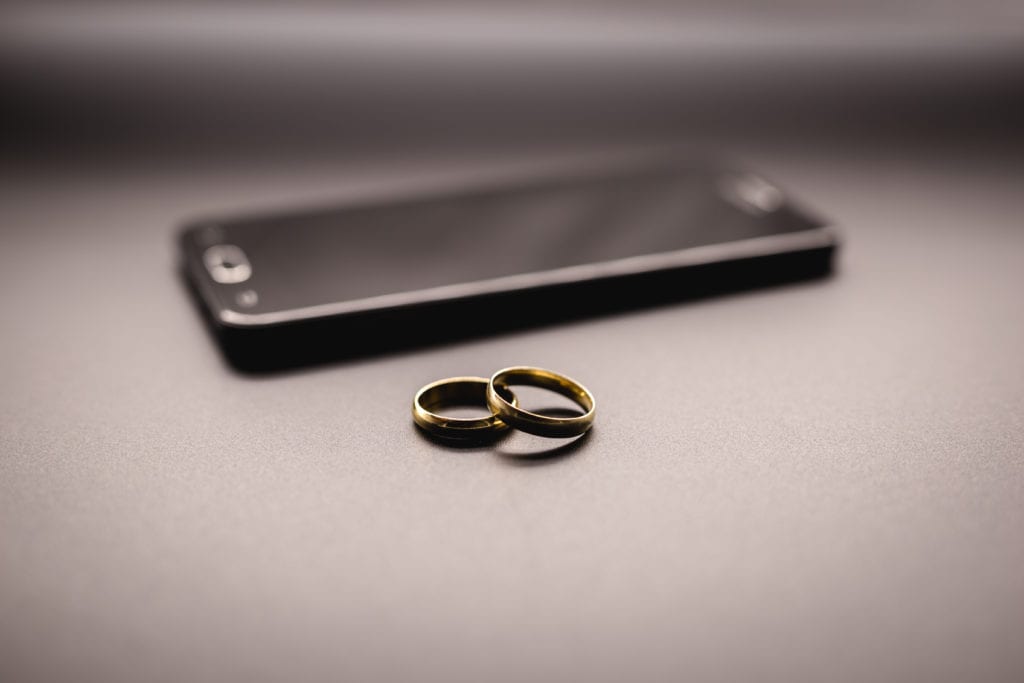
As the coronavirus continues its tsunami of disruption across the wedding industry, many couples determined to get married right now have turned their long-planned, large-scale weddings into quickie elopements that look a lot like the two of them in a living room, live-streaming with their officiant.
But hold up.
There’s a chance that these Zoom, Skype, or FaceTime nuptials might not be recognized as legal marriages.
In most states, officiants must be present in person to make the marriage legal (exceptions include Colorado and Washington, DC, where couples can self-solemnize, and Pennsylvania, where couples can hold a self-uniting Quaker wedding).
In a statement from American Marriage Ministries, a non-denominational nonprofit that offers online ordination nationwide, the organization shares that it has been inundated with emails and calls from couples and officiants asking if they can have virtual weddings, and AMM is “seriously” worried that thousands of couples might not realize that their ceremony must include an in-person component. From AMM’s statement:
“The legal issue with virtual weddings is an inability to verify the couple’s identity and whether the marriage license is legitimate. In order to ensure that this is done properly, states require that the officiant be physically present to sign and complete the marriage license—which has to occur promptly after the ceremony.
“While virtual ceremonies allow guests to witness the wedding from afar, states typically require that the officiant is physically present with the couple to sign and complete the marriage license, along with witnesses (if needed), immediately following the ceremony.”
That said, it’s important to remember that marriage laws vary across the country, so couples just really need to be cautious. There might be some counties willing to make exceptions with the current state of affairs, but generally speaking, virtual weddings are currently not the norm nor are they widely accepted.
Bottom line: For now, this remains the precedent, and until it changes or becomes clearer, couples should seek the counsel of a legal expert who specializes in family law before proceeding with a virtual ceremony.




